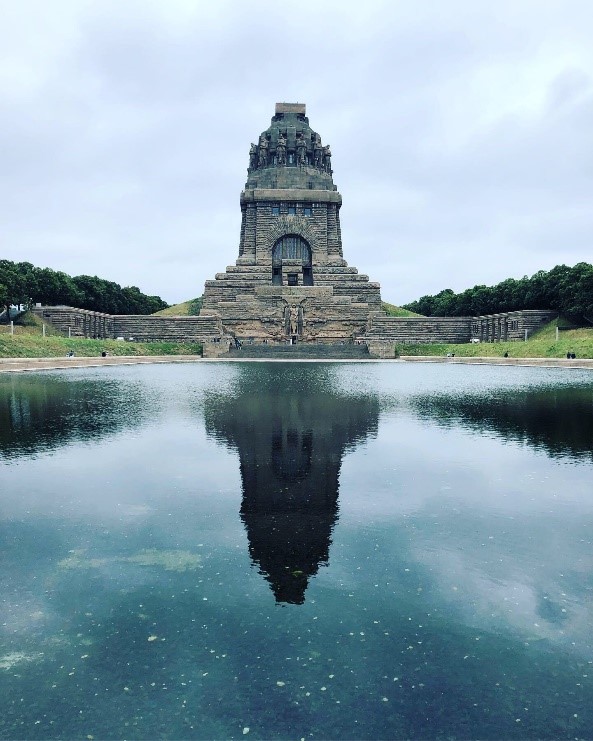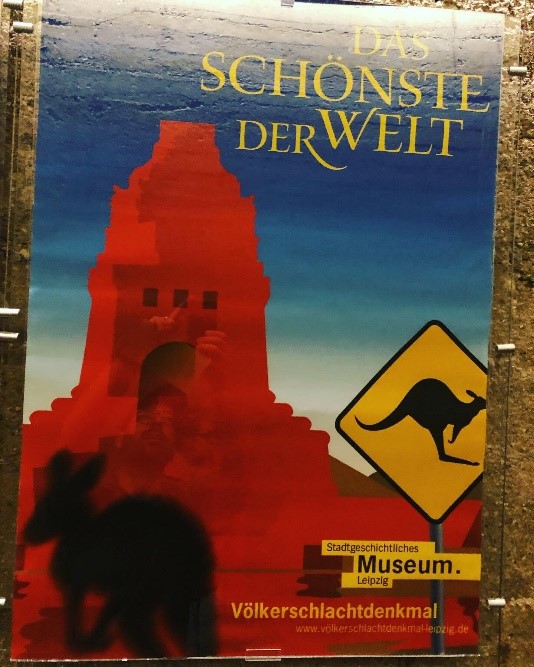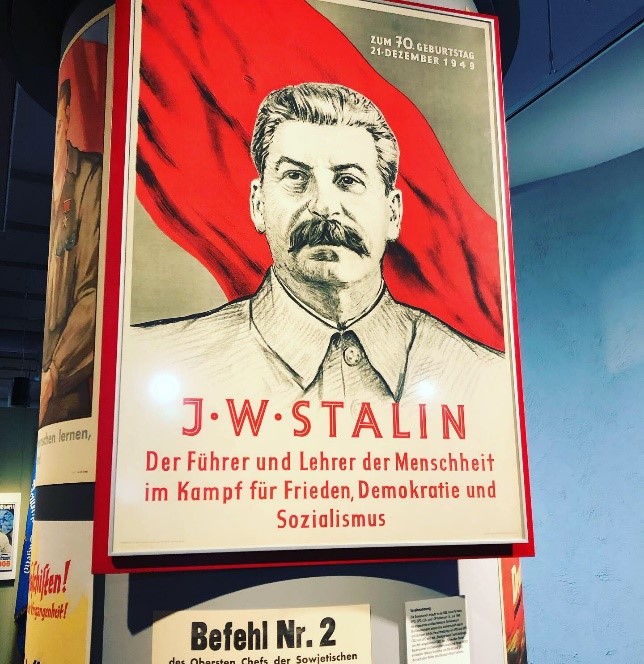Publication Date
September 2019
Language
English
Type
Media
Blog Author
Leon Hartwell
I am a PhD candidate at Leipzig University and Stellenbosch University focusing on conflict resolution and mediation. Over the past month, I had the honour to be a guest at Leipzig University’s Collaborative Research Centre. Although I have been working hard on my PhD thesis, I also took time to learn more about Leipzig and some of the surrounding cities.
Leipzig University is an incredible education institution that has been around since 1409. I can’t help but imagine that I have been walking the same streets as some of Leipzig’s prominent alumni like Johann Wolfgang von Goethe, Friedrich Nietzsche, Richard Wagner, Angela Merkel, and nine Nobel laureates. I am fully aware that many of Leipzig’s building have changed due to fires, wars, and other forms of destruction, so some of the things that I see here today are not quite exactly what those individuals were seeing. Nonetheless, after all these years, the rich and complicated history of Leipzig has survived. It is a place of great resilience.
I really enjoyed the restaurant Auerbachs Keller, which has been operating since 1525. Some would say that it is a bit touristy for their taste, but I had to see it for myself after I heard it was one of Goethe’s favourite places to quench his thirst back when he was a student here at Leipzig from 1765 to 1768. In fact, Goethe loved Auerbachs Keller so much that he incorporated it into Faust. In my field – conflict resolution – the idea of negotiating with the devil is a recurring theme that I frequently have to engage. Sitting at Auerbachs Keller while eating their signature wildschweinbraten and drinking an ice-cold Gose gave me time to contemplate some of those issues.
I also took at side trip to Berlin where I mapped out a few places that were mentioned in Erik Larson’s In the Garden of Beasts. The book is about William Dodd, who was appointed by President Franklin D. Roosevelt as the US ambassador to Germany from 1933 to 1937. I should mention that I am a dual citizen of South Africa and the US. The American in me wanted to track down the locations of the old US embassy and the ambassador’s residence during Dodd’s posting to Berlin. I strolled along the Tiergarten, which was one of Ambassador Dodd’s preferred places to collect his thoughts. While looking for the other locations, I was reminded of the fact that Ambassador Dodd completed his PhD at Leipzig University in 1900. He wrote his thesis in German on Thomas Jefferson’s return to politics in 1796. The Albertina Library also has copies of Ambassador Dodd’s diary for the period during which he was stationed in Berlin.

Another highlight in Leipzig, given my interest in conflict, was to go to the Völkerschlachtdenkmal. The edifice is truly imposing and it says a lot about Leipzig and its role in modern history. One of my first thoughts upon seeing the Völkerschlachtdenkmal is that it looks like the Voortrekker Monument in South Africa. It turns out that out that the design of the Voortrekker Monument was influenced by the Völkerschlachtdenkmal.
I find it very interesting how we pay tribute to people and events. I learned that the original idea behind the Völkerschlachtdenkmal was to celebrate Napoleon’s defeat at Leipzig and to pay tribute to the German folk (not the rulers). Then, when the Nazis took over they used it as a symbol to promote nationalism. This was followed by the German Democratic Republic (GDR) period. At that time, the Soviets wanted to curb nationalism so they contemplated getting rid of the monument. Eventually, they decided not to destroy it after someone made the argument that it was also built in memory of the Battle of Leipzig in which the Russians fought on the same side as Prussia, Austria, and Sweden to defeat the French army of Napoleon.

I have to admit that it is unclear how the Völkerschlachtdenkmal has been presented since the fall of the Berlin Wall. However, I noticed a poster of the Völkerschlachtdenkmal with a warning sign for kangaroos. The poster stated; “das schönste der welt”. I currently live in Australia, so I was actually quite intrigued with the poster. While I have seen many kangaroos in Australia, I can guarantee you though that there are none at the Völkerschlachtdenkmal! Furthermore, it is debatable whether it is the most beautiful monument in the world, but the Völkerschlachtdenkmal is certainly impressive.
Some of my other highlights in Leipzig include going to the Zeitgeschichtliches Forum, Museum der bildenden Künste, Baumwollspinnerei, and Grassi Museum. The Zeitgeschichtliches Forum was particularly educational, and I realized that there are many parallels between the GDR (1949–1990) and the Apartheid system (1948–1994) in which I grew up. I can hear some historians already complaining that those systems were totally different – one was about ideology, the other about race. I recognise those differences, but there were nonetheless a number of aspects of those systems that overlapped. Like many people who grew up here, I am also well acquainted with control, indoctrination, and propaganda.

All in all, I came to the conclusion that Leipzig ticks all the right boxes of being a great city. It has a rich history, amazing art and culture, very accessible public transport, and a fantastic education institution. There is a lot to celebrate. My only regret is that I never got to see a performance at the Opernhaus Leipzig, the third oldest opera house in Europe. As one of my colleagues here said to me, it is a good excuse to come back for another visit.
I will be submitting my final thesis on the 9th of October. I know that that particular date is significant in the history of Leipzig. On that day in 1989, nearly 70,000 people from this city made their way to Nikolaikirche chanting “Wir sind das Volk!” in their call for democracy. Those demonstrations played a momentous role in the fall of the Berlin Wall. From now on, I will be sharing the 9th of October with Leipzig as a special day to remember.
Thank you Leipzig for the education, history lessons, street music, beer, and Wurst. Most of all, thank you for sharing this beautiful city with me. I hope to be back here in the near future!